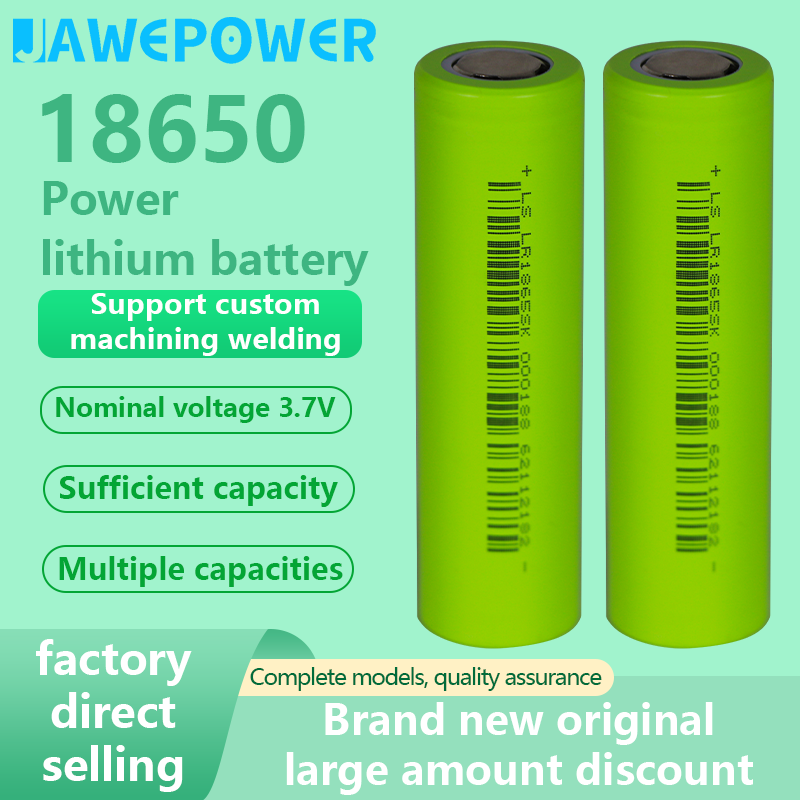In today’s fast-paced technological landscape, the significance of reliable power sources cannot be overstated. Consider the seemingly mundane task of charging your device—it often prompts a vexing inquiry: why do failures always occur during critical battery usage? The 3.7 V 18650 li-ion battery stands as a pivotal solution, addressing the core pain points related to power efficiency and longevity. This article delves into the intricate details surrounding the 3.7 v 18650 li-ion battery while examining traditional solutions and the emergence of advanced technologies.

Analyzing Traditional Solutions and Their Shortcomings
Looking back, we find traditional power solutions, such as nickel-cadmium and alkaline batteries, were rife with inefficiencies. These batteries frequently delivered inadequate energy density relative to their size, and their charge cycles were often limited. The profound drawbacks have led to a shift toward more innovative technologies—specifically, the adoption of lithium-ion technology, which fundamentally alters the way consumers interact with energy storage. What is the rationale behind this migration to advanced battery designs? The answer lies in the enhanced performance capabilities of the 3.7 V 18650 battery.
Principles of New Battery Technology: The Case for Li-Ion
Li-ion technology operates on a sophisticated framework of electrochemical principles, enabling increased energy density while minimizing weight. Unlike its predecessors, the 3.7 V 18650 li-ion battery boasts biocompatibility, facilitating safe integration into a variety of electronic devices—from hybrid vehicles to handheld gadgets. The mechanics involve lithium ions moving between the anode and cathode, a process that culminates in superior efficiency and longevity. This transformation is not merely theoretical; quantified user benefits have substantiated the efficacy of these batteries.
Quantifying User Benefits: Why Li-Ion Batteries Matter
Empirical studies have shown that utilizing a 3.7 V 18650 battery drastically extends device usability. Users observe upwards of twenty percent more operational time compared to older technologies, a fact underscored by their robust life cycle ratings. Beyond just longevity, decreased charging times mirror today’s need for quick responsiveness in our devices. Thus, the implementation of the 3.7 v 18650 li-ion battery presents undeniable advantages, integrating seamlessly into diverse applications, promoting a shift in consumer expectations regarding battery performance.
Conclusion: Imperatives for Evaluating Battery Solutions
When considering a battery solution, always verify these three metrics: ① Energy density, ② Charge cycle longevity, and ③ Safety ratings. These criteria are essential for navigating the complexities of modern electronics. The Jawepower brand emerges as a premier manufacturer, renowned for its commitment to quality and efficiency. Their supply advantages ensure consumers access top-tier 3.7 V 18650 li-ion battery options, rendering them a suitable choice for optimized energy solutions.
In an era dominated by technological advancement, the role of the 3.7 v 18650 li-ion battery is integral. Functionality issues stemming from inadequate battery solutions can now be mitigated through the adoption of this superior technology. Consumers must remain discerning, critically assessing their options as they navigate the ever-evolving market landscape.
Taking an additional look at the li ion 18650 battery 3.7 v reveals its significance in powering portable electronics, electric vehicles, and renewable energy systems. The relentless pursuit for longer-lasting, more efficient batteries heightens the relevance of such technologies. As society increasingly relies on such innovations, understanding their principles can lead to well-informed choices.
As we reflect on the evolving landscape of battery technology, it becomes clear that thorough research and proactive evaluations are essential for discerning optimal battery solutions. The robust performance metrics of the 3.7 v 18650 li-ion battery render it a flagship option in modern energy storage. Engaging with credible manufacturers such as Jawepower simplifies the pursuit of efficient and reliable power sources.